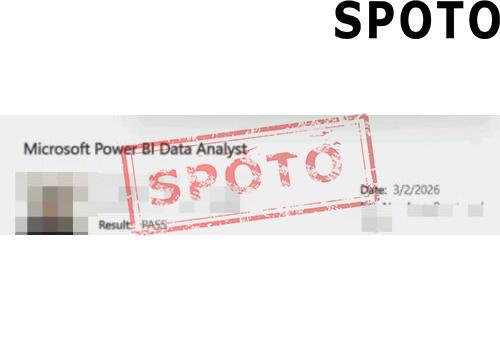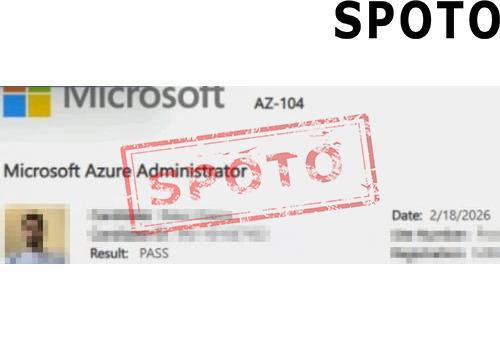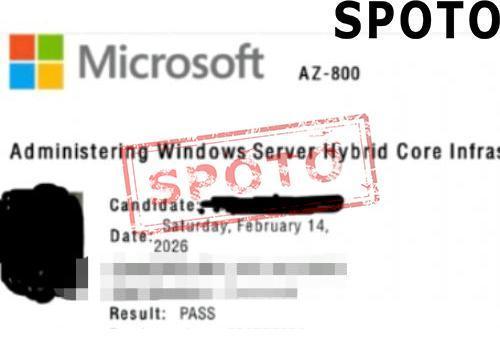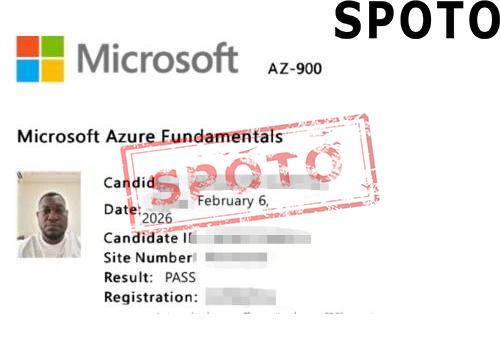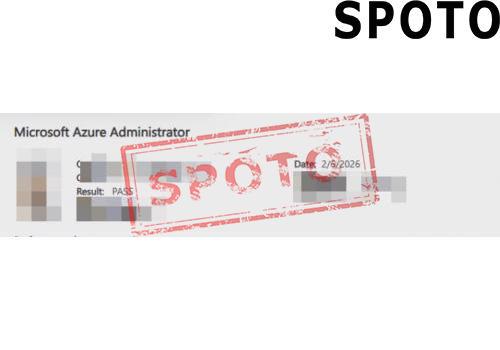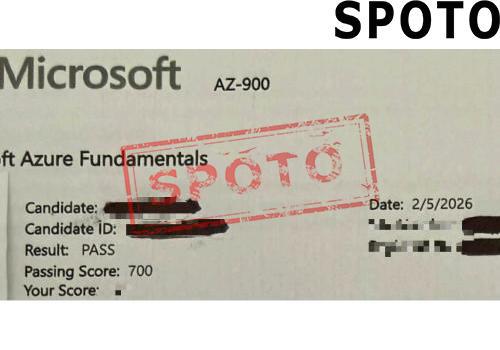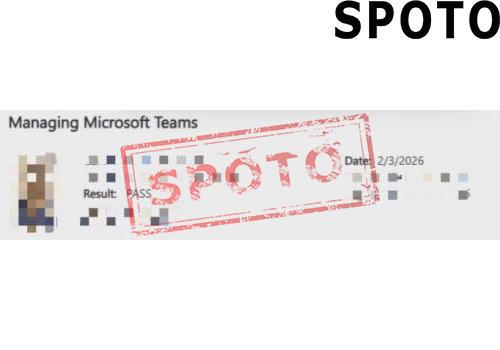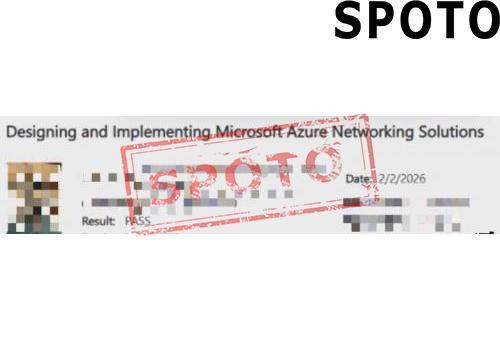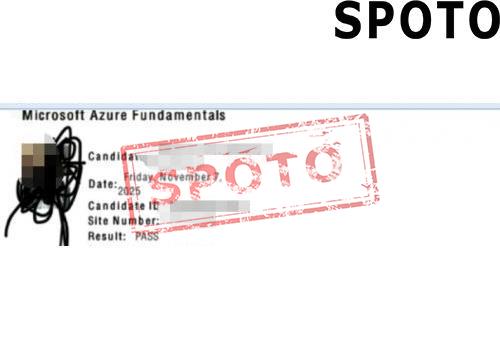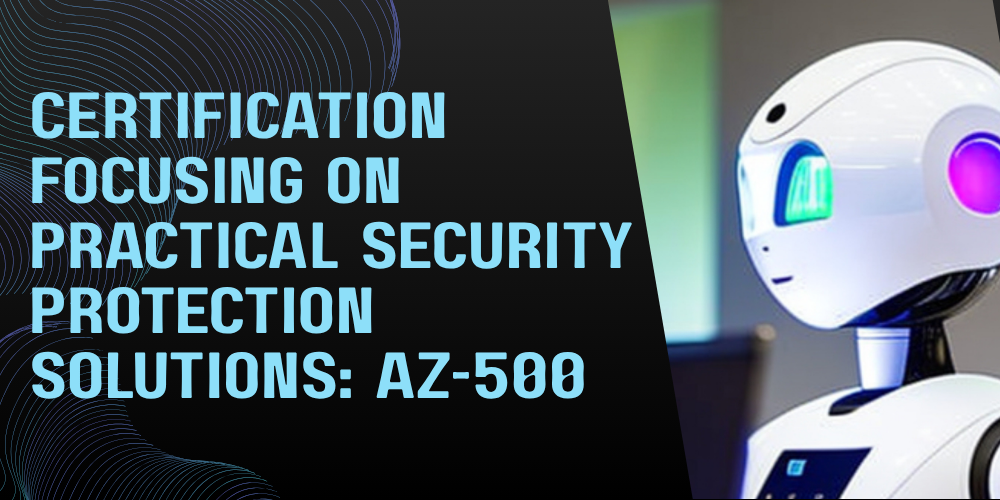
Table of Contents
- 1. Introduction to the AZ-500 certification
- 2. Career Value of Holding the AZ-500 Certification
- 3. Overview of the AZ-500 Certification
- 4. What are the requirements to be an AWS Certified Machine Learning Engineer – Associate?
- 5. Comparable Certifications to AWS Certified Machine Learning Engineer – Associate Certification
Microsoft Azure Security Technologies is a core intermediate certification in Azure security, focusing on the design and implementation of practical security solutions.
1. Introduction to the AZ-500 certification
Microsoft Azure Security Technologies (AZ-500) is an intermediate security certification launched by Microsoft, focusing on verifying the practical ability of practitioners to design, implement, manage, and monitor security protection solutions on the Microsoft Azure cloud platform.
It is the only exam for the "Microsoft Certified: Azure Security Engineer Associate" certification, aimed at technical personnel with Azure foundation and security experience, aiming to cultivate practical security engineers who can ensure the security of Azure environment, data, and applications. It is the core qualification for transforming from a "general IT position" to an "Azure security expert."
With the acceleration of enterprise cloud migration, Azure environments are facing increasingly prominent security risks such as network attacks, data breaches, and privilege abuse, requiring professionals to build a "defense in depth" system.
The core of AZ-500 certification is to cultivate "practical security protection implementers in the Azure ecosystem," rather than simply "security theory researchers."The holder must be proficient in Azure core security services, able to design and implement security solutions for Azure resources, solve practical security issues, and ensure that the Azure environment meets security compliance standards.
When building security protection for enterprise Azure environments, AZ-500 certificate holders will configure multi factor authentication and conditional access policies through Azure AD to prevent account theft; Build network boundary protection using Azure Firewall and network security groups to restrict unauthorized access; Manage encryption keys through Azure Key Vault and enable static encryption for storage accounts and virtual machine disks; Build a security operations center using Azure Sentinel, collect logs, and respond to security events.
2. Career Value of Holding the AZ-500 Certification
AZ-500 is the only official Azure intermediate security certification from Microsoft, highly recognized among enterprises using Azure. When recruiting for Azure security positions, it is often listed as a "must-have condition," which is the core distinguishing factor between ordinary IT personnel and security experts.
AZ-500 certification focuses on "practical implementation," which proves the ability to independently solve Azure security issues and directly undertake enterprise Azure security projects, avoiding the embarrassment of "only knowing theory but not practical operation."
AZ-500 certificate holders can join the Microsoft Azure Security Exclusive Community to obtain official security best practice documents, threat intelligence updates, and industry compliance solutions; prioritize participation in Microsoft Security Technology Summit and offline salons, connect with experts in the same field and high-end project opportunities, and lay the foundation for advanced senior security engineers or security architects.
3. Overview of the AZ-500 Certification
For professionals who are committed to becoming cloud security experts and responsible for designing and maintaining the overall security posture of Azure environments, the AZ-500 Microsoft Azure Security Technology Certification is a highly authoritative core certification.
The AZ-500 certification focuses on the full process and defense in depth security system of Azure cloud platform, aiming to systematically verify whether you have comprehensive protection capabilities from identity, platform to data and applications. It is a key yardstick to measure your technical depth in the Azure security field.
As the first line of defense for security, managing identity and access requires proficiency in the core configuration of Azure Active Directory, including implementing multi factor authentication and RBAC based on the principle of least privilege. Furthermore, you must master advanced services such as privileged identity management and conditional access to achieve immediate control over privileged access and risk based refined access policies, thus building a strong barrier to identity security.
Implementing the platform protection module requires you to implement security practices into specific resources. You need to master configuring terminal protection and disk encryption for virtual machines, enabling network isolation and data encryption for storage accounts, and implementing security enhancements for Azure Kubernetes services to ensure the security baseline of the computing and storage infrastructure itself.
You need to be able to use Microsoft Defender for Cloud as a unified security management platform to assess and improve the overall security situation. This includes checking security scores, fixing vulnerabilities, and using Azure Policy to enforce custom compliance standards, ensuring that the environment continues to comply with internal policies and external regulatory requirements.
The core of security lies in protecting data. You need to master configuring encryption for services and using Azure Information Protection for data classification and leak prevention. At the same time, you must be proficient in deploying web application firewalls and protecting APIs, and centrally store sensitive information such as application keys in Azure Key Vault to build critical protection at the application layer.
Finally, certification requires you to possess proactive threat management and emergency response capabilities. You need to configure the Microsoft Defender series plan for threat detection and use Azure Sentinel, a cloud native SIEM tool, to centrally collect and analyze security information, and create automated response scripts to quickly respond to and contain security incidents.
4. What are the requirements to be an AWS Certified Machine Learning Engineer – Associate?
(1) Qualification prerequisites:
Before you prepare for the AZ-500 certification, we recommend that you have at least 6-12 months of Azure basic operations experience and be familiar with configuring Azure core resources; Understand basic network security knowledge and common types of network attacks and defense methods.
You can choose to prioritize passing the Azure Basic Certification or Intermediate Administrator Certification to solidify your Azure technology foundation.
(2) Training and examinations:
The AZ-500 has approximately 40-60 questions, including multiple-choice questions and practical questions for simulating Azure security configuration scenarios. The exam lasts approximately 180 minutes. Full score of 1000, pass with 700 points or above. The exam fee is approximately 165 US dollars.
(3) Qualification maintenance:
The AZ-500 certificate is valid for 3 years and needs to be renewed by focusing on the latest Azure security service features and threat prevention practices during the validity period through the "renewal exam."
5. Comparable Certifications to AWS Certified Machine Learning Engineer – Associate Certification
- AWS Certified Machine Learning - Specialty (MLS-C01)
- AWS Certified Data Engineer - Associate (DEA-C01)
- Microsoft Certified: Azure AI Engineer Associate (AI-102)
- Google Cloud AI Engineer Certification
